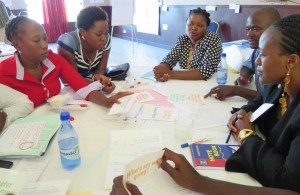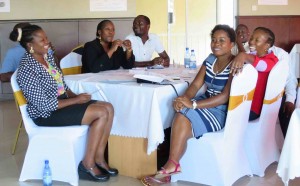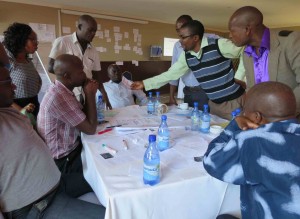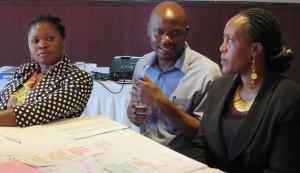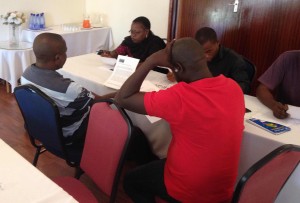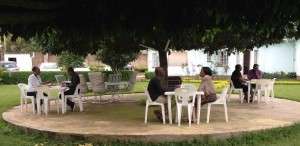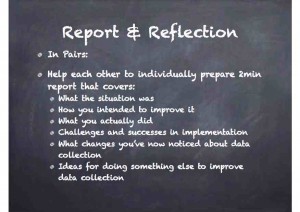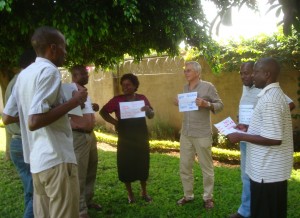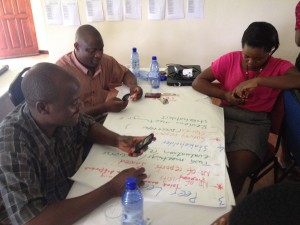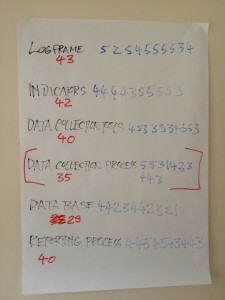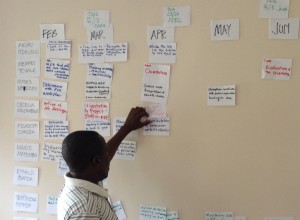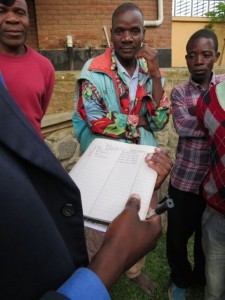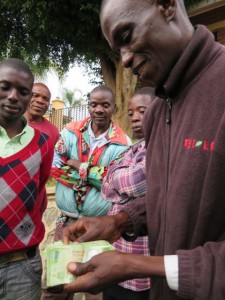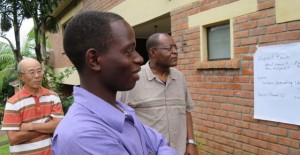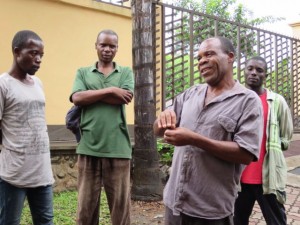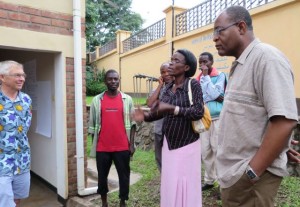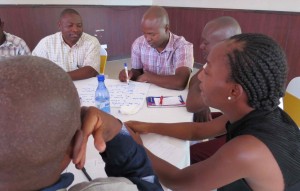
Richard scribing participants views of facilitation after doing a Lit Review
My observation is that there is a serious gap between rhetoric and reality in the international development world. There are people with positions called ‘field facilitators’ but with job descriptions based on achieving outputs such as ‘Numbers of people trained in …. ‘
or ‘Number of villages declared ODF’. Similarly donors require workshops exploring ‘lessons learned’, but in practice everyone looks at their laptop before making a presentation and the most senior person makes a few comments that get noted as the ‘lessons learned’. I have been trying to show a few different ways of doing things, and CU asked me to run one day courses on ‘everything I know about those workshop techniques I’ve been using’.
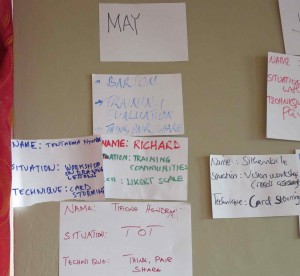
At the end of the session I asked each to make a commitment to try out at least one of the techniques that they’d used during the day. They all seemed very keen to do so which was gratifying.
As the organisation is spread across quite a wide area, yesterday was the first of four. I managed to demonstrate, and/or they practiced in the course of unpacking this thing called facilitation:
History wall, Lit Revew, NGT, Poster Process, Noisy RR, Silent RR, Card storming, Think/Pair/Share, Likert Scales and a long stream of introductions (as arrival times are always erratic). The group provided some hilarious energisers, which were slightly risqué but nothing compared with Village Dancing
I will of course make some changes, one of which will be to run a session on ground rules, with a question about mobile phone use….

